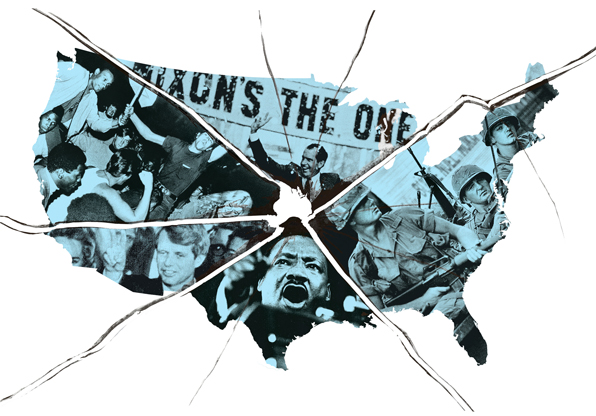

Stephen B. Young is Katherine Kersten in drag
And I can prove it. Just read this. Now that Katherine Kersten doesn’t appear in the Strib so often, Young is it go-to guy for turgid polemics about American decline. His op-ed piece on Sunday the 7th of January (in the paper edition) was an epic vent-a-thon and an avatar for the genre.
Before continuing, let me say, students, be sure not to cite Young’s article in your school papers, unless the subject is the progress of psychosis.
Young has an obvious attachment to the romance of the war in Vietnam; he has written about it in the Strib before. He was in Vietnam for part of the war, not as a soldier as I recall, but as some kind of civilian evangelist for the American Way, sort of a latter-day Quiet American, perhaps. He has harbored a bitterness against all the dirty hippies, and Uncle Walter Cronkite, too, for tanking the war. Young is oblivious to the fact that the Vietnam war was pre-tanked long before 1968 and the events he complains about in his op-ed. But his point is a common conservative canard. Here’s the lede:
When the complete history of the decline and fall of the American nation comes to be written, the turning point toward failure will not be recorded as the election of Donald Trump in 2016. It will be found among the events of 1968.
The year 1968 featured the Tet Offensive, the assassination of two anti-war activists, Martin Luther King, Jr. and Robert Kennedy, and the police riot (because that is what it was, incited by Chicago’s mayor, Richard Daley) at the Democratic National Convention.
The most trusted journalist in America at time, probably ever, Walter Cronkite, returned from a trip to Vietnam after Tet (he’d been there before), and told us at the end of a newscast that the best we could hope for was an ugly war of attrition and stalemate in Vietnam. Robert McNamara, the architect of the massive escalation of the war, resigned in February, 1968.
In his memoir, McNamara wrote that the U.S. should have begun to pull out of Vietnam in 1963. He also said this:
“I want to put Vietnam in context,” he writes, because he believes that Vietnam helped make the American people cynical about their Government and because “it is cynicism that makes Americans reluctant to support their leaders in the actions necessary to confront and solve our problems at home and abroad.”
So Stephen Young has it ass backwards. The hippies and the Yippies and all the anti-war protesters didn’t create the cynicism; they were the product of it, years in the making. I know this first hand.
Young writes that, as reported in the recent Ken Burns documentary, the Tet Offensive was a military failure for the North Vietnamese and the Vietcong. He didn’t see, apparently, all the footage of the growing misgivings and resistance to the war that had been building for years leading up to Tet. It was perhaps a military failure (it didn’t overthrow the South), but it was a huge strategic victory. After Tet, even our military and political leaders couldn’t maintain the fiction that we were winning. Young seems to lament that we didn’t stick another 50,000 men and women (yes, there are women on the wall, too) into the maw of that fruitless endeavor.
Young repeats another canard: the U.S. had never lost a war before Vietnam. You only have to look as far back as the Korean conflict to recognize what baloney that is. We were in retreat at the time of the cease-fire.
If you look at our expeditionary endeavors since World War Two: Korea, Vietnam, Afghanistan, and Iraq, we’ve never won a boots-on-the ground war since then. A lot of vets will tell you that it is hard to beat a dog in his own backyard.
Well, we did kick Grenada’s ass, and I guess Panama’s, too, so there is that.
Thanks for your feedback. If we like what you have to say, it may appear in a future post of reader reactions.

